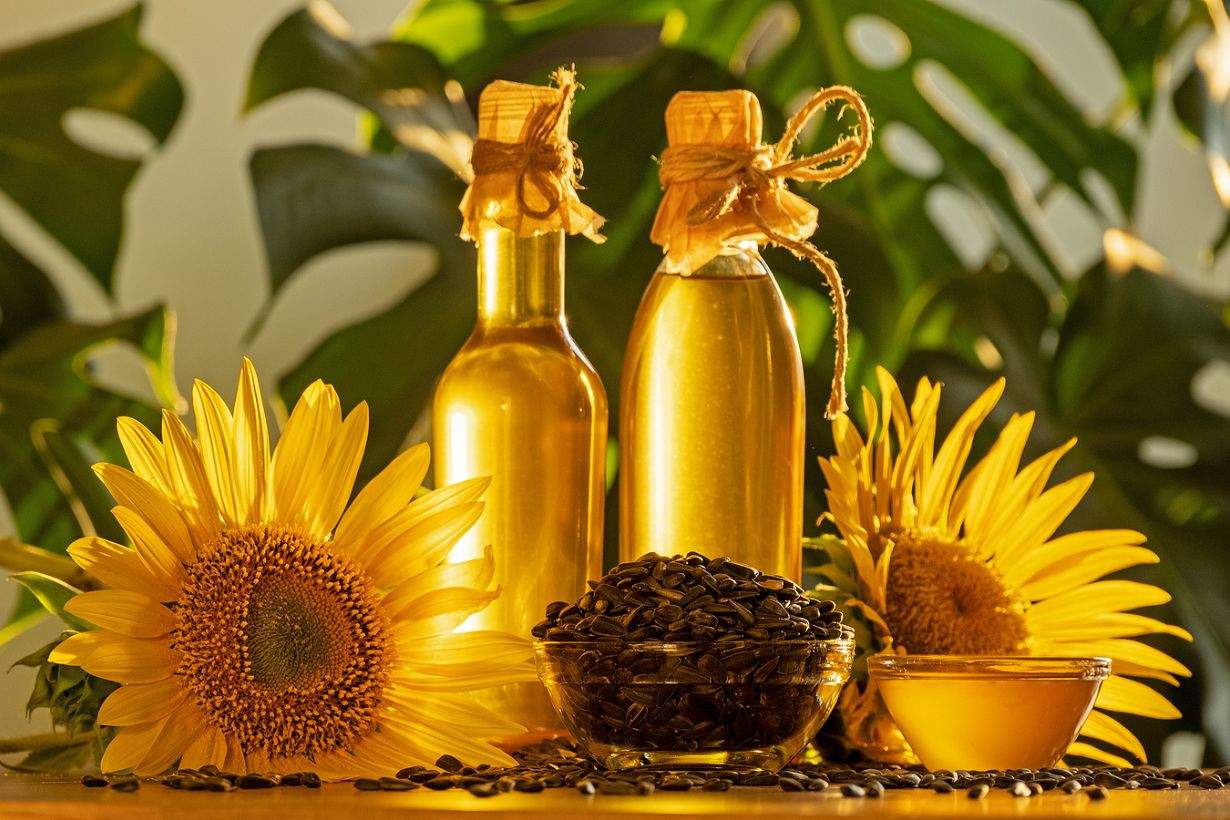Quality Sunflower Oil
Quality Sunflower oil, a versatile and widely used cooking oil, is a staple in households around the world. In Southeast Asia, Thailand and Malaysia are significant players in the production and sale of sunflower oil. This blog aims to explore the quality aspects of sunflower oil available for sale in these two countries and highlight potential differences that consumers and businesses should consider.
Production Practices:
Both Thailand and Malaysia have a strong agricultural industry, and their approach to sunflower oil production may differ. Investigating the production practices, including farming methods, extraction processes, and quality control measures, can provide insights into the overall quality of the sunflower oil.

Nutritional Composition:
Sunflower oil is valued not only for its cooking properties but also for its nutritional content. The fatty acid profile, vitamin E content, and other nutritional aspects may vary between sunflower oils produced in Thailand and Malaysia. A comparative analysis of the nutritional composition can help consumers make informed choices based on their health preferences.
Packaging and Shelf Life:
The way sunflower oil is packaged and stored plays a crucial role in maintaining its quality. Assessing the packaging materials, labeling information, and understanding the shelf life indicated on the product can give an indication of the care taken in preserving the oil’s freshness and preventing degradation.
Certifications and Standards:
Certifications and adherence to international quality standards provide assurance of the product’s quality. Consumers should look for certifications such as ISO, HACCP, or other relevant quality assurance labels. These certifications signal that the sunflower oil meets specific criteria and undergoes rigorous testing.

Consumer Reviews and Reputation:
In the age of online connectivity, consumer reviews and the reputation of sunflower oil brands can offer valuable insights. Examining reviews from individuals who have purchased and used sunflower oil from Thailand and Malaysia can provide real-world perspectives on taste, cooking performance, and overall satisfaction.
Price vs. Quality Trade-off:
While price is a significant factor in purchasing decisions, it is essential to consider the trade-off between price and quality. Cheaper options may not always deliver the same level of quality as more premium counterparts. Evaluating the overall value proposition, including quality, nutritional content, and packaging, can guide consumers in making informed choices.
Environmental Considerations:
Sustainability and environmental practices are increasingly important considerations for consumers. Understanding how sunflower oil is produced in Thailand and Malaysia, including factors like deforestation, pesticide use, and waste management, can influence environmentally conscious purchasing decisions.

Exploring the quality of sunflower oil for sale in Thailand and Malaysia involves a comprehensive assessment of production practices, nutritional composition, packaging, certifications, consumer reviews, and environmental considerations. By taking a holistic approach to evaluating these factors, consumers can make informed choices that align with their preferences for cooking, health, and sustainability. Whether in the bustling markets of Thailand or the vibrant streets of Malaysia, understanding the nuances of sunflower oil quality enhances the culinary experience and supports responsible consumer choices.

